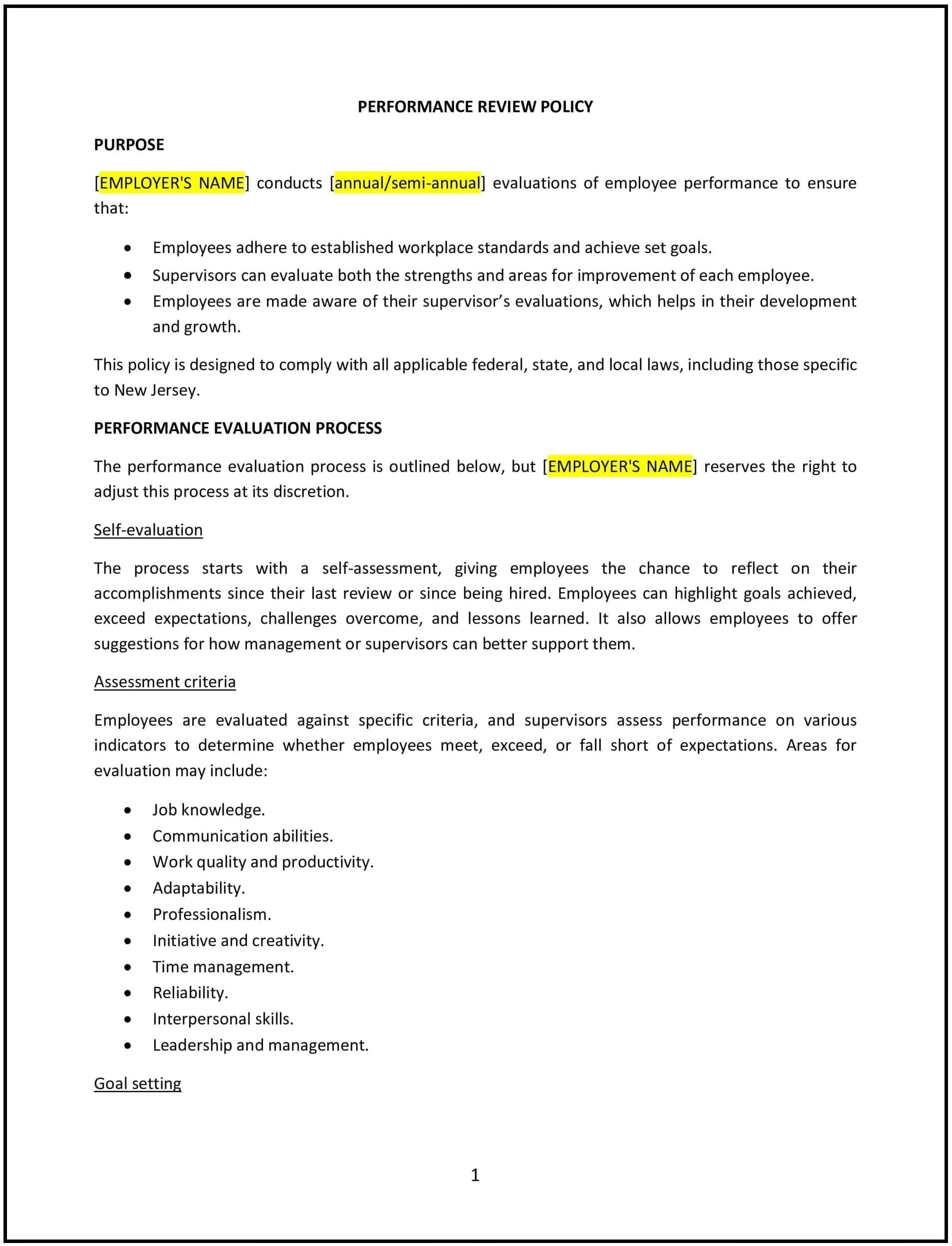Performance review policy (New Jersey): Free template
Got contracts to review? While you're here for policies, let Cobrief make contract review effortless—start your free review now.

Customize this template for free
Performance review policy (New Jersey)
A performance review policy helps New Jersey businesses establish a consistent and structured approach to evaluating employee performance. This policy outlines the frequency of performance reviews, criteria for evaluation, employee self-assessments, and feedback processes. It also includes guidelines for setting goals, providing constructive feedback, and using performance reviews to support career development.
By adopting this policy, businesses in New Jersey can enhance employee engagement, improve performance, and align individual goals with organizational objectives.
How to use this performance review policy (New Jersey)
- Define review frequency: Specify how often performance reviews will take place (e.g., annually, bi-annually, or quarterly) and the timeline for conducting them.
- Set evaluation criteria: Outline the key performance indicators (KPIs) and competencies that will be assessed, such as job knowledge, communication skills, teamwork, and productivity.
- Implement self-assessments: Encourage employees to complete a self-assessment prior to their review, allowing them to reflect on their achievements and areas for improvement.
- Provide structured feedback: Establish a clear process for managers to give constructive feedback, focusing on strengths, areas for improvement, and development opportunities.
- Set SMART goals: Use the review process to set Specific, Measurable, Achievable, Relevant, and Time-bound (SMART) goals for employees, ensuring they align with company objectives.
- Offer career development support: Provide employees with resources and opportunities for professional growth, such as training programs, mentorship, or new responsibilities.
- Address performance issues: Use the review to identify performance gaps and implement improvement plans, including setting timelines and follow-up meetings.
- Review and update: Regularly assess the policy to reflect evolving business goals, feedback mechanisms, and New Jersey employment practices.
Benefits of using this performance review policy (New Jersey)
This policy provides several benefits for New Jersey businesses:
- Enhances employee development: Provides a structured process for employees to improve performance and achieve career goals.
- Promotes accountability: Ensures employees understand their job expectations and receive feedback on their performance.
- Aligns individual and company goals: Helps ensure that employees’ objectives are in line with business priorities, driving organizational success.
- Improves communication: Fosters open dialogue between employees and managers, strengthening relationships and trust.
- Increases employee satisfaction: Creates a transparent process where employees feel valued and have the opportunity to grow professionally.
Tips for using this performance review policy (New Jersey)
- Communicate the policy clearly: Ensure employees understand the performance review process, expectations, and timeline.
- Train managers on giving feedback: Provide training on how to offer constructive and balanced feedback that supports employee growth.
- Make reviews a two-way conversation: Encourage employees to share their own feedback and concerns during the review process.
- Document performance discussions: Keep detailed records of performance reviews, goals, and follow-up actions for future reference.
- Review the policy regularly: Update the policy to reflect changes in business priorities, employee development needs, and New Jersey labor laws.